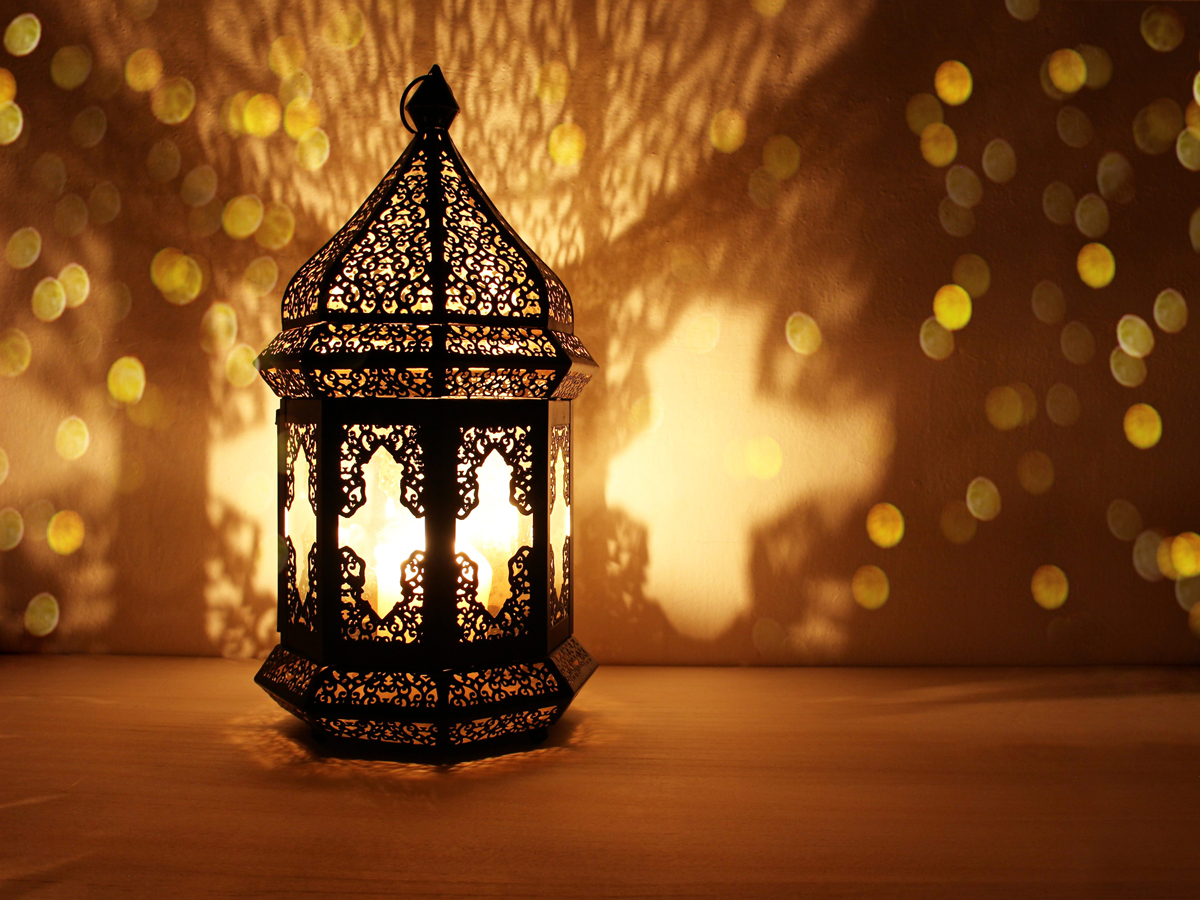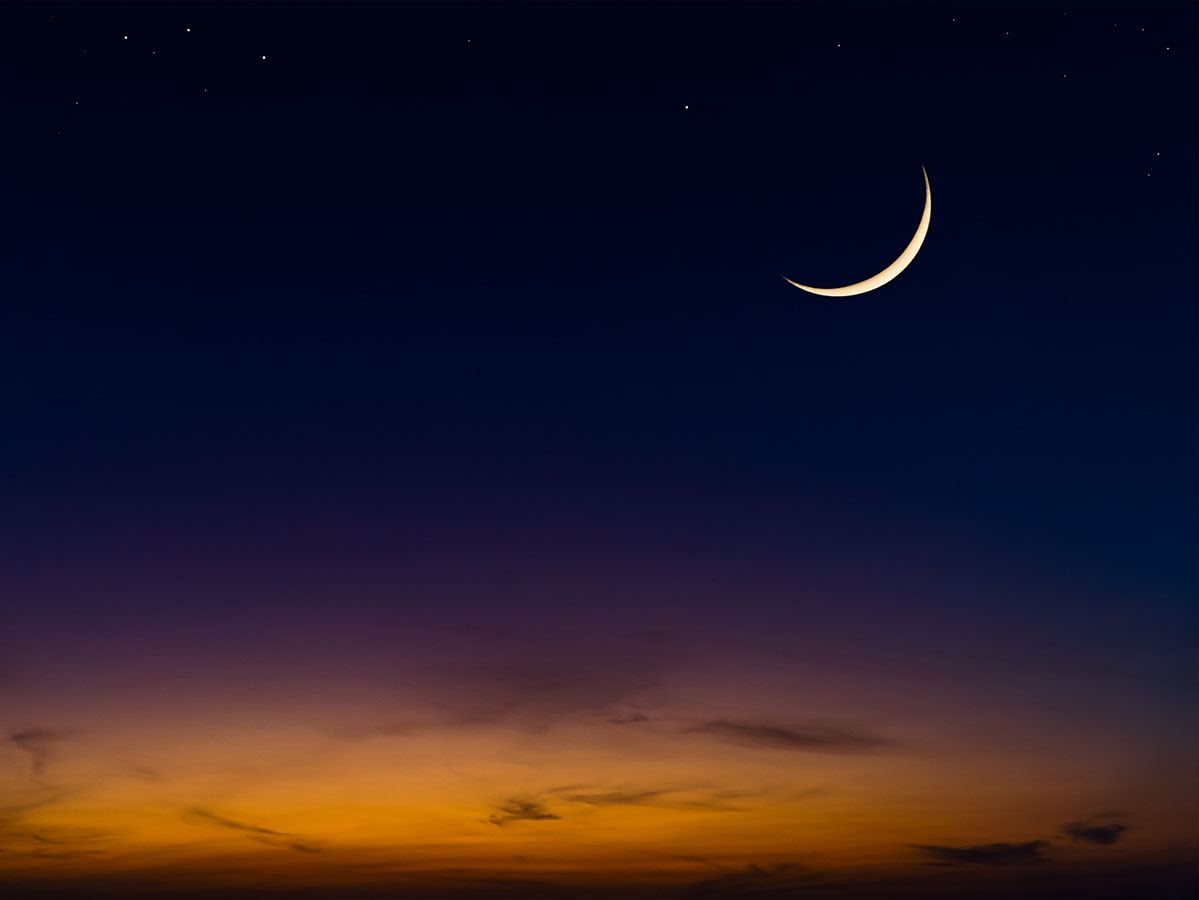Curious about celebrating Ramadan in Saudi Arabia? Whether you’re visiting the Kingdom or are a new resident, or someone who has lived in KSA for many years, marking the occasion, with friends and family is always very special, especially Ramadan in Riyadh.
Ramadan is the holiest month of the year for Muslims, so Ramadan in Saudi Arabia is a important time.
Here’s your full guide to marking Ramadan in Riyadh, and across Saudi.
What is Ramadan?
Ramadan is the ninth month in the Hijiri calendar, and it is classed as the holiest month because it is believed that the Quran was revealed to the Prophet Mohammed (PBUH) during this period.
Muslims don’t consume any food or drinks between dawn and sunset during Ramadan – timings marked by the morning fajr prayers and the evening maghrib prayers. Once maghrib prayers start, the fast can be broken.
Prophet Mohammed (PBUH) broke his fast with water and a date, and most people break their fast in the same way even now to respect the sunnah (practices of the Prophet), before moving on to a light meal.
A break in eating is then recommended, so the stomach doesn’t get too full, too quickly, before having another light meal.
As well as abstaining from food, Muslims use the month for inner reflection, to focus on charity and being grateful for what they have.
When is Ramadan in Saudi Arabia?
The date of Ramadan varies slightly each year because it starts when the crescent moon (called hilal) coincides with the astronomical new moon.
The exact date is determined by the moon sighting committee in Saudi Arabia. This is a group of astronomers and Muslim advisors who gather together to look for the new crescent moon. When the moon is sighted using advanced equipment, Ramadan starts the next day.
For Ramadan in Saudi Arabia 2023, it has been confirmed that it will start on Wednesday March 23.
When does Ramadan end?
On the day before the 30th day of Ramadan, the Moon Sighting Committee reconvene to look for the new crescent moon. If they see it, the following day will mark the end of Ramadan and then beginning of Eid al-Fitr. This change also marks the end of the month-long dawn-to-sunset fasting of Ramadan.
Eid al-Fitr 2023 in expected to start on Friday April 21.
Are there changes for Ramadan 2023?
Saudi lifted COVID restrictions in March 2022, so there are no regulations on social distancing and venue sizes to be concerned with for Ramadan in Saudi Arabia 2023.
Why is fasting important?
It’s an exercise in self-restraint and is intended to remind people of those less fortunate and to give those who observe the fast a chance to detoxify the body and mind. It gives people the opportunity to focus solely on one’s faith.
Fasting is one of the five pillars of Islam, alongside daily prayer, giving to charity, the declaration of faith and making the Hajj pilgrimage to Makkah.
As mentioned above, fasting lasts from dawn until sunset during Ramadan. The fast is broken with iftar and is prepared for with suhoor, a pre-dawn meal to get people through the day.
Are there any exceptions where it is acceptable to publicly break the fast?

People who suffer from medical conditions and women who are pregnant can be exempted from fasting.
What is iftar?
Iftar is the meal to break the fast after sunset. In fact, the word literally translates to “break fast”. The timing of iftar can vary slightly depending on the day, as well as across Saudi (and the rest of the world) because it is related to the setting of the sun. So, iftar time in Riyadh can vary by a few minutes in comparison to other cities in the Kingdom, such as Jeddah or Tabuk.
Typically, people will break their fast by enjoying dates and dried apricots along with juices, before heading to the evening prayer. After that, large meals are the norm, usually with family and friends. Iftar can be enjoyed at home, or it you can go out for it. Many restaurants in Riyadh offer specials for Ramadan, including those dedicated for iftar. The iftar celebration will vary by venue, but places will often have special menus and decorations for Ramadan, and you can likely find set menu and buffet iftars. You can also find iftar tents put up throughout the city during Ramadan for large celebrations of people coming together to break their fast.
Head over to timeoutriyadh.com to see our full list of iftars in the city.
And what is suhoor?
Suhoor is a meal taken just before sunrise, before the day of fasting starts.
Hotels, restaurants and lounges can also offer suhoor specials. Many hotels host smaller buffets in comparison to iftar. At some suhoor events, you will also be able to enjoy traditional activities and more to celebrate until the hours of the morning during Ramadan. Suhoor can also be marked at home of.
Where can I find iftars and suhoors in Riyadh?
Like we’ve said, there are various iftars and suhoors across the city whether you’re looking for something small and casual or something larger with a mix of Arabic and international dishes. Many restaurants and hotels will have offers including buffets, set menus or special à la carte options for Ramadan.
For all of the latest about iftars, suhoors and top iftar tents, check out our full iftar and suhoor listings. We will be keeping you updated with all of the top events, deals and much more for the entire season.
Are restaurants and cafés open during the day during Ramadan?

Restaurants will be open later in the day for iftar during Ramadan in Saudi Arabia.
Buffets in hotels and restaurants are usually whipping up traditional Saudi food and bites
to break the fast, along with dates, juices, and more.
What are working hours during Ramadan?
The Ministry of Human Resources typically set the official number of working hours during Ramadan in Saudi Arabia. It is typically five hours – with work starting at 10am and finishing at 3pm. Some companies might also offer flexible working hours, or the ability to work from home during Ramadan. The timing and hours can also change depending on the sector as well as the nature of work so it is always best to confirm with your employer.
Ramadan 2023 working hours have been confirmed.
Are school hours different for Ramadan?
Yes, but the timings can change between public and private schools, the level of education, and even from school to school. The Ministry of Education typically sets school hours for Ramadan.
In In 2022, the Ministry of Education announced that private and public schools would remain open during Ramadan in Saudi Arabia, and school would begin between 9am and 10am, depending on each school.
For universities and high schools, the classes began at 9pm, and all ended “according to the academic schedule for each grade stage”.
There was also a flexible system with each lesson will last a total of 35 minutes.
School hours for Ramadan 2023 have yet to be confirmed, but watch this space. Time Out will be keeping you updated with the very latest information online as it is announced by the Ministry of Education.
Are shops and malls open during Ramadan in Saudi Arabia?
It can vary by city, and by mall or shopping centre, so it is best to check updated timings at a particular location.
Some malls and shopping centres might be closed during the day and will then open after the evening prayer. Furthermore, some places might extend their hours, especially in the evenings.
Supermarkets and pharmacies will remain open throughout Ramadan in Riyadh.
What is the significance of charity during Ramadan?
Charity is a very important part of Islam and is even more significant during Ramadan.
There are plenty of charitable initiatives that can be contributed to by anyone.
Charity is known as zakat, and as we have mentioned previously, it is one of the five pillars of Islam, and it is particularly significant during Ramadan and the Eids: Eid al-Fitr and Eid al-Adha.
What is Eid, and why are there two?

Eid al-Fitr and Eid al-Adha are the main two annual Islamic celebrations. Eid al-Fitr translates as the “festival of breaking the fast” and happens immediately after Ramadan.
Eid al-Adha is the second celebration of the year, and it translates as the “festival of sacrifice”. And that’s just what it is as, traditionally during this time, animals like sheep and goats are slaughtered. It’s approximately 70 days after the end of Ramadan and marks the end of the Hajj, the annual pilgrimage to Makkah, which is another pillar of Islam.
Arabic phrases to learn for Ramadan in Saudi Arabia
A linguistic guide to the terms you hear throughout Ramadan
Iftar
This means “break fast”. It is the meal at sunset to break the fast.
Suhoor
Pre-dawn meal before the fast begins for the day.
Ramadan Kareem
A greeting that means “generous Ramadan”.
Ramadan Mubarak
Another greeting to wish people a blessed Ramadan.
Sawm
The word used for fasting and one of the five pillars of Islam.
Zakat
This is another of the five pillars of Islam. It requires adult Muslims to give 2.5 percent of their wealth to the needy. It can be paid at any time during the year, but is more prominent during Ramadan.
Salah
Prayer, another of the five pillars of Islam. Five prayer times are observed throughout the day, the first at dawn, then at noon, mid-afternoon, sunset and night.
Tarawih
Special congregational prayers held each evening during Ramadan, in addition to the five daily prayers.
Eid al-Fitr
Meaning “feast of breaking the fast”, this three-day celebration marks the end of Ramadan and the start of Shawwal – the tenth month in the Islamic calendar – with prayers, festivities, food and gifts.
Taqabbala Allah
May God accept your fasting/prayers.
Mubarakon aalaykum shahrou Ramadan
May the month of Ramadan be a blessing for you.
Eid Mubarak
Blessed Eid.
Tafaddal iftar maa’na (to a gent) tafaddali iftari maa’na (to a lady)
Please join us for iftar.
Anaa saa’im (as a man) or anaa saa’ima (as a woman)
I am fasting.
Hello
Marhaba
Peace be upon you
Al salam aa’laikum, respond with wa aa’laikum al salam
Goodbye
Maa’ assalama
Please
Law samahit (to a gent) or law samahti (to a lady)
Thank you
Mashkoor (to a gent) or mashkoora (to a lady)
Yes
Na’am
No
Kalla
One
Wahid
Two
Ethnan
Three
Thalathah
Four
Arba’ah
Five
Khamsah
Six
Settah
Seven
Saba’ah
Eight
Thamaneyah
Nine
Tes’ah
Ten
Aasharah
Looking for more about Ramadan in Saudi Arabia? These are popular iftar dishes to try.









